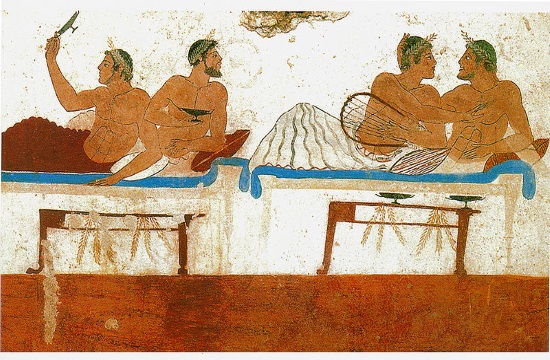When Gangs Killed Gay Men for Sport in Australia
The New York Times
By MICHELLE INNIS
SYDNEY, Australia — On a December day in 1988, a teenager on a spearfishing expedition found a body at the bottom of one of the wild, honey-colored sandstone cliffs that line Sydney Harbor.
Naked, torn and battered by the rocks, the dead man was a promising American mathematician, Scott Johnson. His clothes were found at the top of the cliff in a neat pile with his digital watch, student ID and a $10 bill, folded in a small plastic sheath. There was no wallet, and no note.
The police concluded that Mr. Johnson, 27, had committed suicide, and a coroner agreed. Fatal leaps from the cliffs around Sydney into the fierce sea below were not uncommon, then or now.
But 28 years later, a new inquest into Mr. Johnson’s death has begun. His brother, a wealthy Boston tech entrepreneur, has pressed the Australian authorities for years to revisit the case, arguing that Mr. Johnson was murdered because he was gay and that the police failed to see it.
If so, it appears Mr. Johnson may not have been the only one.
Sign Up For the Morning Briefing Newsletter
During the 1980s and 1990s, the Australian authorities now say, gangs of teenagers in Sydney hunted gay men for sport, sometimes forcing them off the cliffs to their deaths. But the police, many of whom had a reputation for hostility toward gay men, often carried out perfunctory investigations that overlooked the possibility of homicide, former officials and police officers say.
Now the police in New South Wales, the state that includes Sydney, are reviewing the deaths of 88 men between 1976 and 2000 to determine whether they should be classified as anti-gay hate crimes.
About 30 of the cases remain unsolved, and the police have not said how many of the killings were tied to gangs. About a dozen victims were found dead at the bottom of cliffs or in the sea, the police say.
The review and the inquest into Mr. Johnson’s death are casting light on a shocking chapter of Sydney’s history, one that some say has yet to be fully revealed.
“We can now see that predators were attacking gay men,” said Ted Pickering, who was the police minister for New South Wales in the late 1980s. “And they were doing it with the almost-certain knowledge that the police would not have gone after them. That was the police culture of the day.”
No new arrests have been made in connection with the killings since the review began in 2013, and the police declined to discuss the open investigations. In many of the cases under review, the police said, relevant evidence had not been collected at the time or has since been lost.
“While the review is a difficult task because we can’t rewrite history, we know it is important we do everything we can to ensure the best outcomes in the future,” said Tony Crandell, an acting assistant commissioner for the New South Wales Police Force.
But others have suggested that the review, which aims to determine which cases may involve bias but not to solve them, is not a sufficient response.
“It may be tempting for the police to concentrate on merely relabeling crimes rather than doing fresh detective work to solve them,” said Stephen Tomsen, a criminologist at Western Sydney University.
Sydney is a more tolerant city than it was decades ago, and critics say that police attitudes have changed considerably. Uniformed officers now march in Sydney’s annual Gay and Lesbian Mardi Gras Parade, which drew a quarter-million spectators last year and was attended for the first time by a prime minister, Malcolm Turnbull.
But if the laws were changing slowly in the 1980s — New South Wales decriminalized sex between men only in 1984 — society, including the police, was even slower to do so.
“The police culture in Australia up to the early 1990s was hostile to gay men,” Michael Kirby, a retired High Court justice who served during that period, wrote in an email. “They were basically considered antisocial, low-level criminals and lowlife types who did disgusting things and should not be surprised that they got injured and even killed.”
Justice Kirby, who is gay, added, “I do not believe that this extended to a general conspiracy to back off professional investigations of murder.” Rather, he said, there was “an attitude of complacency and indifference. Certainly not the usual motivation of energy to track down the murderers.”
Researchers who have studied the matter say the gangs were loose alliances of young men, teenage boys and sometimes girls who looked for victims to harass and assault at Sydney’s so-called gay beats — places where gay men were known to meet, including secluded spots on the cliffs. The gang members called it “poofter bashing.”
“There was a series of gangs,” said Stephen Page, a former New South Wales detective who reopened some of the cases years later. “They wouldn’t just hit one beat, they’d be aware of all of them.”
Few victims would have gone to the police, Professor Tomsen said. Most gay men were closeted, and many would have feared being assaulted by the police themselves. After the city’s first gay Mardi Gras parade was broken up by the police in 1978, some marchers were beaten in their jail cells.
“Any gay who was attacked would be seen as a foolish risk-taker if they reported that attack to police,” Professor Tomsen said.
Still, there were some arrests and prosecutions. In 1990, a Thai man was attacked with a hammer at the top of a cliff and fell off the edge. Three teenagers were arrested and convicted of murder.
According to a report by Sue Thompson, a former state-appointed liaison between the New South Wales police and gays, one of the assailants told the police: “The easiest thing with a cliff is just herding them over the edge.”
The idea that the killing was part of a pattern was not seriously pursued until years later. In 2000, Mr. Page, spurred by letters from a grieving mother, reopened the case of Ross Warren, a 25-year-old television news anchor who disappeared in 1989.
Mr. Warren’s body was never found, though his car keys were discovered in a rock ledge. The police concluded that he had accidentally fallen into the harbor. But Mr. Page found the original investigation had been cursory at best.
“There was no crime scene, no evidence, and no witnesses to Ross Warren’s disappearance,” he said.
Mr. Page began looking into similar cases. In 2005, an inquest concluded that Mr. Warren had been murdered, another man had been pushed or thrown from a cliff, and there was a strong possibility that a third man had been, too.
“This was a grossly inadequate and shameful investigation,” Magistrate Jacqueline Milledge, a deputy state coroner, said of the police handling of Mr. Warren’s death.
In all three cases, she said, the police had failed to account for the possibility of homicide, even though men attacked in the same area who did go to the police had “told of hearing their assailants threatening to throw them off the cliff face.” The three killings remain unsolved.
When Steve Johnson learned that such cases were being revisited in Sydney, he felt he finally had an possible explanation for his younger brother’s death. Mr. Johnson had looked out for Scott since childhood, when their parents divorced, and he considered suicide impossible.
“This was my brother, the person I was closest to, my soul mate,” Mr. Johnson, 57, said in December, outside the Sydney courtroom where the inquest began.
Scott Johnson had moved to Australia to be with his partner and was pursuing his doctorate at Australian National University in Canberra. He was a “virtuoso” mathematician, a “brilliant but remarkably gentle and unassuming presence,” according to Richard Zeckhauser, a Harvard economist who once wrote a paper with him.
Scott Johnson had applied for permanent residency, and his professional prospects were good.
“He would have been a first-round draft pick for any university in any part of the world,” his brother said. “He had no reason to be stressed or unhappy.”
The day he disappeared, Scott Johnson told his Ph.D. supervisor, Ross Street of Macquarie University in Sydney, that he’d had a breakthrough on a vexing problem that was crucial to his dissertation.
“It sounded like he had the whole thing in his head,” Professor Street said at the December inquest. “He was happy about it. I was happy about it.”
Today, evidence of what happened to Mr. Johnson, as in many of these cases, is scant. He was found below a gay hangout, but the local police officer who responded to the call testified that he had not known that at the time.
The police found no signs of a struggle at the cliff top, but there had been a storm that could have washed such evidence away. The site was never secured as a crime scene.
In the years after Mr. Johnson’s death, his brother became wealthy in the 1990s tech boom, selling a company that developed compression technology for delivering sound and video over the internet to America Online.
After reading about the 2005 inquest on the Sydney cliff deaths, Steve Johnson began devoting some of his resources to finding out what had happened to his brother. He hired an investigative journalist, Daniel Glick, to go to Australia to dig up court records and other documents. And he assembled an array of high-powered lawyers — his legal team includes a former Massachusetts attorney general, Martha Coakley, who said her firm took the case pro bono — to argue for reopening the case.
In 2012, a new inquest overturned the original finding of suicide. But the coroner reached no conclusion about how Mr. Johnson had died, saying that while anti-gay violence was a possibility, so was an accidental fall.
When the current inquest resumes in June, it will hear new evidence, the coroner’s office has said.
Whatever the result, Steve Johnson and others hope it will spur further investigations of these cases.
“There was clearly a pattern to these deaths,” said Margaret Sheil, whose brother Peter was found dead at the base of a cliff in 1983. “Today, it is extraordinary to think that we would not have had an open discussion about what happened. And if we had, it might have prevented it happening to someone else.”






